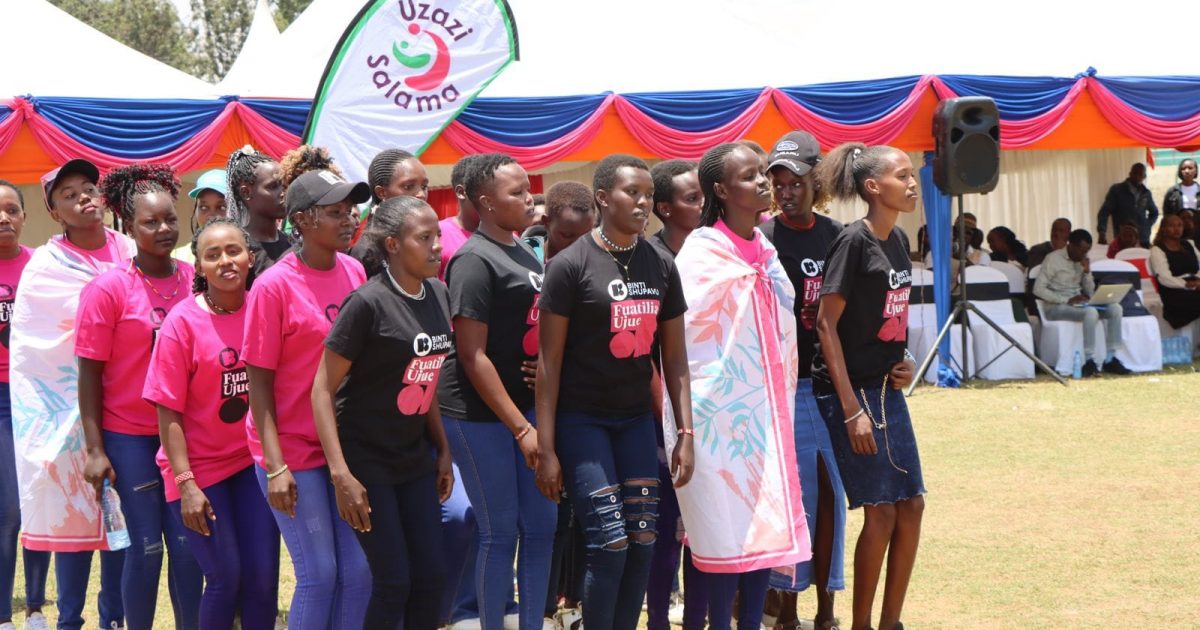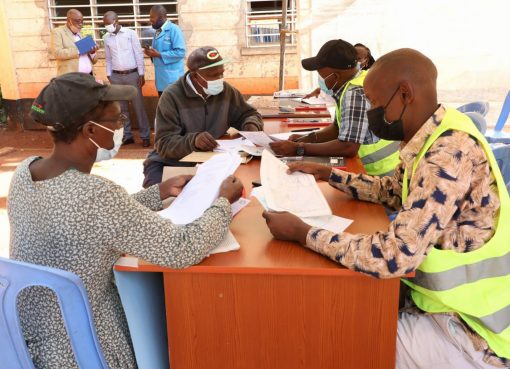Narok County is ranked position four in the country in teenage pregnancy at 28 per cent after Samburu, 50 per cent, West Pokot, 36 per cent and Marsabit at 29 per cent; according to the Kenya Demographic Health Survey (KDHS), 2022.
The national prevalence stands at 15 per cent, meaning the number of teenage pregnancies and motherhood in Narok, is far above the national average.
Stakeholders, however, feel that there is a great improvement in containing the girls as the County was ranked the first in teenage pregnancy in the 2014 survey at 40 per cent.
Reports from the Department of Health shows that over 4, 000 girls report for their first antenatal clinics, in the various health facilities across the County every year.
Probably one would wonder the fate of these thousands of girls who fall pregnant before they get to adulthood.
This curiosity led us to Sekenani area in Narok West Sub-county, where a group of young mothers dubbed ‘Binti Shupavu’ have come together to better their lives after delivery.
When we arrived at their manyatta homestead that the girls live, the tens of girls were in groups making various products that they would sell to the market, to earn a living.
While one group was busy making liquid soap, another was involved in bead work, while another was sewing recyclable pads and napkins that they sell to the members of the public.
The girls looked very friendly, jovial and talked in low tones as they engaged in their work, which has now become their daily norm.
One of the girls, Diana Kiminta, 19 years old, said she fell pregnant when she was in form two and was forced to drop out of school for some time to take care of her child.
Later, after the intervention of the area chief, her parents were forced to take her back to school where she sat for her national examination in 2023.
Her early pregnancy did not please her grandmother, who is her sole guardian, as she was already struggling to meet her basic needs and opted to give her up for marriage at an early age.
Luckily, a friend connected her to the ‘Binti shupavu’ group where she joined other girls of her age to engage in the income generating business.
“Since I joined this group in February 2024. I have learnt many things that help me earn a living. The group has rejuvenated my hope of being a great business lady in the future,” she said.
Mercy Keleto, 21, had just joined the University of Nairobi (UON) to pursue a diploma course when she fell pregnant and was forced to drop out of the institution.
“I was only 19 years old when I fell pregnant. My parents had high hopes on me but their hopes shuttered when I became pregnant. They stopped supporting my University studies, causing me to drop out of school,” she said.
She reiterated that she joined Binti Shupavu group early this year, where together with her peers are taken through guidance and counselling programs to better their lives.
Another girl, Susan Wanjiru, fell pregnant in form four and was forced to drop out of school before she sat for her final examination.
Wanjiru who is one of the group leaders said the girls came together with a common aim of improving their livelihood after they fell pregnant at a young age.
“Being together has improved our ego, we share our experiences and visions, as we motivate one another on having a bright future. This is the reason we came together,” she said.
She acknowledged Population Services Kenya, an organization sponsored by Children’s Investment Fund Foundation (CIFF), that addresses critical issues surrounding sexual and reproductive health, particularly among vulnerable young girls.
The group has been supporting the girls through offering them moral support, financial literacy, decision-making, and paying school fees for the girls who opted to return to school to complete their studies.
The young girl leader said the group is organized and has a constitution that directs how they carry out their businesses.
She said the money earned from the sale of their products is put in the common bank account and benefits all the members equally.
“We aspire to be renowned business people and entrepreneurs, though our beginning is small, we hope that our end will be very great,” he said.
Wanjiru called on teenage girls not to engage in sex when still in school, as this could force them to drop out of school and get married at an early age.
Instead she challenged the girls to major in their studies and do professional courses that will earn them a decent livelihood.
“I advise my fellow girls who are still in school to watch-out that they do not fall into the hands of men with ill-motive intentions. Let them remain focused as their future is very bright,” she reiterated.
Narok Children Services Director, Pilot Khaemba, commended various non-state actors in the county who have contributed to nurturing girl-child until teenage pregnancy fell from 40 per cent in 2014 to 28 per cent in 2022.
He called on all children stakeholders to continue mentoring young people in the right direction so that the county can achieve less than 10 per cent teenage pregnancy.
Khaemba also asked parents to spend quality time with their children when on holidays, so that they can understand their problems, and guide them on the correct path.
A religious leader, Reverend Fred Lemama, attributed teenage pregnancies in Narok County to Female Genital Mutilation (FGM), as girls believe they are mature enough to engage in sex after the cut.
He condemned the retrogressive cultural practice and asked mothers to guide and counsel their girls, so that they cannot engage in immoral behavior.
By Ann Salaton



